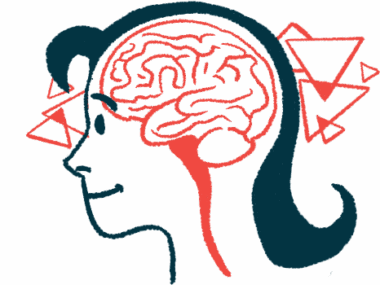Voranigo approval urged in EU for treatment of certain brain tumors
Daily oral therapy designed for patients with 1 of 2 genetic mutations
Written by |

A committee of the European Medicines Agency (EMA) is recommending that the daily oral therapy Voranigo (vorasidenib) be approved in the European Union to treat people with certain forms of brain tumors, called glioma, that arise from cells in the central nervous system.
The recommendation from the EMA’s Committee for Medicinal Products for Human Use (CHMP) specifically covers the use of Voranigo in forms of glioma called predominantly nonenhancing grade 2 astrocytoma or oligodendroglioma. Eligible patients would be those whose tumors carry one of two specific genetic mutations: IDH1 R132 or IDH2 R172.
The CHMP’s recommendation supports Voranigo’s use in patients 12 and older who weigh at least 40 kg (88 lbs), have only had surgical intervention, and are not in immediate need of radiotherapy or chemotherapy.
This positive opinion will now be reviewed by the European Commission, which has final say over approvals of medications in the EU, and in Iceland, Liechtenstein, and Norway. The European Commission isn’t obligated to follow the CHMP’s recommendations, but it almost always does.
“Today’s recommendation for EU approval brings us one step closer to offering Voranigo to patients in the EU with Grade 2 IDH-mutant glioma who have historically had limited treatment options for this relentless disease,” Susan Pandya, MD, vice president clinical development and global head of oncology LS/LCM at Servier, the company that markets Voranigo, said in a press release.
Voranigo already approved in North America, Australia, as glioma treatment
IDH — fully, isocitrate dehydrogenase — is an enzyme that is commonly mutated in certain types of gliomas. These mutations occur in most lower-grade gliomas, which are slower-growing brain tumors that tend to affect younger adults. These tumors, normally grade 2, typically grow more slowly than high-grade, or more aggressive, gliomas.
The mutated IDH enzyme interferes with normal cell function and promotes tumor growth. This mutation is considered an early event in glioma development and plays a key role in shaping the tumor’s behavior and prognosis.
We look forward to continuing conversations with … regulatory bodies around the world to introduce Voranigo as a potential new standard of care for patients with [certain] gliomas.
Voranigo is designed to block the activity of mutant IDH enzymes, thereby suppressing tumor growth. The therapy is approved in the U.S. and other countries, including Canada and Australia . In addition to the application under review in the EU, Servier has applied for the treatment’s approval in Japan and the U.K.
“We look forward to continuing conversations with the EMA and other regulatory bodies around the world to introduce Voranigo as a potential new standard of care for patients with IDH-mutant gliomas,” Pandya said.
The CHMP’s recommendation for Voranigo was based on data from a Phase 3 clinical trial called INDIGO (NCT04164901). Thate study enrolled 331 people with grade 2 IDH-mutant glioma who had undergone no prior treatment apart from surgery. The participants were randomly assigned to take Voranigo or a placebo, given daily.
The results showed that median progression-free survival — that is, the time that patients were alive without disease progression — was significantly longer for participants given Voranigo (27.7 vs. 11.1 months). The treatment also was found to delay the time to the next intervention.




